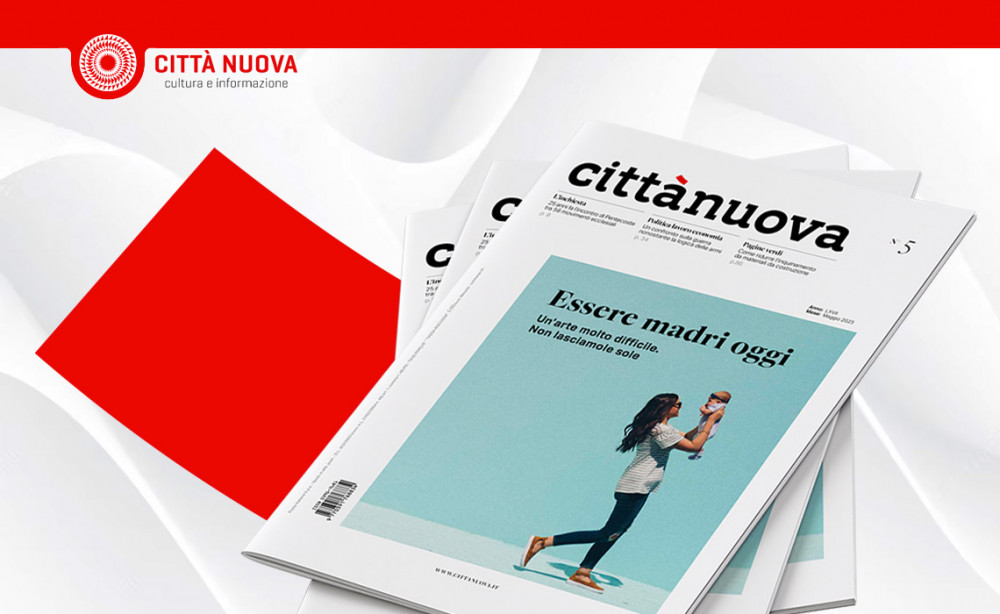by Luigino Bruni
published in Città Nuova n.14/2009
Several papal encyclicals have marked epocal stages in history. The first wave of industrial capitalism had put many in crisis by the social questions it posed. Rerum Novarum gave voice to an entire cultural and social movement searching for answers to this crisis. Then, during a dark moment for Italy and for Europe, Quadragesimo Anno represented a cry of freedom and of fraternity symbolized by the principle of subsidiarity, which resounded like a civil liberation program. And emerging during a phase of social and cultural contestation, already denouncing the limits of second generation capitalism, Populorum Progressio represented a manifesto for social, economic and political commitment for an entire post-Council generation (both within and outside the Church). Caritas in Veritate is another event that spans today’s history. The last encyclical of Benedict XVI should be greeted with joy and hope by who works in the civil, economic or political sphere. At the same time, it represents continuity with the social teaching of the Church and an important innovation (to be much reflected on in the next few years).
First of all, in the first few lines of the letter, the pope makes an invitation to overcome one of the most radical contradictions of our society: that between the sphere or logic of gift or gratuitousness, and that of the market. This need for unity is at the heart of Caritas in Veritate´s message, and it represents a point of extraordinary prophetic strength. Of all things, gratuitousness is that which is missing most among today’s economic debate, in markets and in businesses. Whoever mentions gratuitousness is considered naïve, a hoax (“what’s behind this?”), and in any case, dangerous for the functioning of markets and businesses.
In fact, gratuitousness, on one side, is confused with “free” (gratis) or with philanthropy. On the other side, gift is mistaken for material “presents” or companies´ promotional giveaways. In reality, as the pope reminds us, gratuitousness refers back to charis, or grace (nothing like free: gratuitousness is weighty!), and to agape, the greek word that Latin-speakers translated as caritas (charity) to further underline the close link between Christian love and charis, or grace.
Gratuitousness is, in fact, a grace as it is a gift not only for who receives acts of gratuitousness but also for who performs them. The capacity to love gratuitously is always something that happens in us and always surprises us, as when we are capable of starting again after big failure or of truly forgiving serious mistakes of others. This is the type of gratuitousness that the capitalistic market isn´t acquainted with. Instead, this encyclical calls us to put it at the center of our economic, political and social relationships, where it seems impossible, but where there are already many living this way in the “`civil economy` or the `economy of communion`”(n. 46).
One can understand, therefore, how the pope makes a strong invitation to overcome the distinction between non-profit and for-profit. Spheres or sectors of gratuitousness don’t exist: every business, beyond it’s form, is called to gratuitousness. This is the human code – if a business, whether for-profit or non-profit, isn’t open to gratuitousness, it isn’t a human activity and therefore cannot bring fruits of humanness. And one can also understand why: Benedict XVI reminds us that profit cannot be and should not be the main purpose of a business, but rather one among many elements, and certainly not the most important.
Re-launching gratuitousness into the economy, the encyclical calls the market back to its vocation of meeting between free and equal people, and it’s a radical critique of capitalism (precisely why the word is never cited in the text). We will save the market and its gift of civilization only by overcoming capitalism and moving towards a civil economy and an economy of communion.
After the first encyclical on charity, and the second on hope, we could have expected the third on faith. And actually, that is what happened, as only a vision of man, an anthropology that believes the person to be made in the image of a God who is communion, with “made in the trinity” stamped in its being, can accept the invitation to gratuitousness even in this world, in this economy. On this anthropological wager resides the hope that the economy announced will not be a utopia (a no-place) but a eutopia (a good place), the place of the human being.







